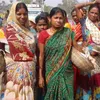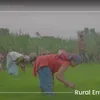[Monday Motivation] Meet Himani Nautiyal, the wildlife researcher improving the socio-economic status of Himalayan women farmers
Wildlife researcher Himani Nautiyal supports women farmers to start their organic Kiwi fruit farming business, empowering them financially.
In 2014, when Himani Nautiyal started her journey in the Mandal Valley, Uttarakhand, she aimed at understanding wildlife and human behaviour closely.
She started observing animals and their response to their surroundings. On the side, she interviewed locals to understand their socio-economic status, who majorly depend on their cattle to earn a living by selling milk.
In a conversation with SocialStory, Himani says,
“The forest acted as the main feeding land for the cattle and hampered the quality of the forest, resulting in the wild animals making their way towards the fields. Hence, my projects revolved around the betterment of the wildlife, forest, and easing out the Himalayan household income source.”
Her curiosity around the forest and wildlife sector pushed Himani to make a career out of it. At present, Himani is raising funds to help the women self-help group Rudranath Mahila Gram Sangathan, Uttarakhand.
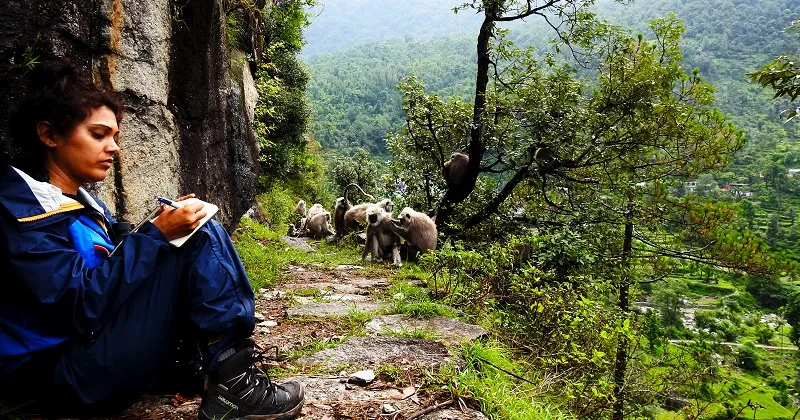
Himani Nautiyal
Helping Himalayan women
A BSc graduate in Forestry from H.N.B Garhwal University, Uttarakhand, Himani subsequently pursued an MSc in Wildlife Biology from Tamil Nadu’s Bharathidasan University.
Moreover, she received her PhD in Primate Behavioural Ecology from Japan’s Kyoto University.
Born and raised in a village in the Indian Himalayas, Himani was well-aversed with life in such a challenging landscape. In fact, an absence of exposure and robust patriarchy meant local women did not receive a quality education.
It was an uncommon concept and a challenge for a woman to work in the forest alone, especially for a wildlife researcher. However, her supervisor and her family motivated Himani throughout the journey.
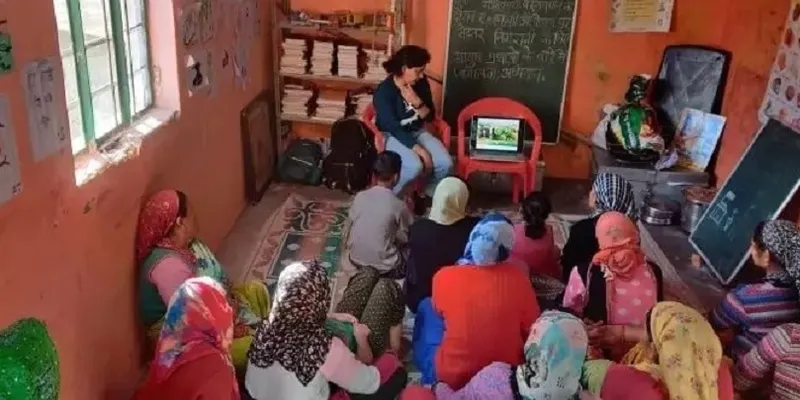
Himani Nautiyal with the women farmers
“When I went to the Mandal Valley for the first time, people were very supportive. As time passed, it became difficult to make people understand that I'm not only supporting the wildlife but also working for the betterment of the village. It became really important to make them believe in my work and to treat both wildlife and humans equally,” she recalls.
Himani found Kiwi fruit cultivation to be an ideal solution as the climate is very suitable for this species’ growth. Kiwi has a high market value, is not damaged by wildlife, and requires little labour work.
Himani’s project on Kiwi cultivation focuses on conserving the wildlife and providing a stable income source for the women farmers.
“If I can, then other rural women also can. I believe, they would be an idol for thousands of rural women in India,” she says.
For the past seven years, Himani is quantifying this issue in-depth by putting all her efforts into inspiring and helping women in the Mandal Valley to improve their socio-economic status.
However, since the project didn't directly fit into international grant ideas, Himani resorted to crowdfunding on ImpactGuru.com for funding. Each structure for Kiwi farming costs between Rs 50,000 and Rs 60,000, an ideal income for a single-family.
“As we want the structure to last for 60 years, the material used is iron that will increase the cost of production. We target around 50-60 women farmers to support. However, it may fluctuate according to the funding received,” explains Himani.
Serving the cause
One of the key issues in the Himalayas is the overexploitation of women. The entire domestic and agricultural work, including the collection of grass and firewood from the challenging Himalayan forests, is done by women.
Despite the farmlands in the region getting frequently destroyed by wild animals, these women follow the traditional agriculture system, which requires high labour work, and, in turn, see insufficient food production.
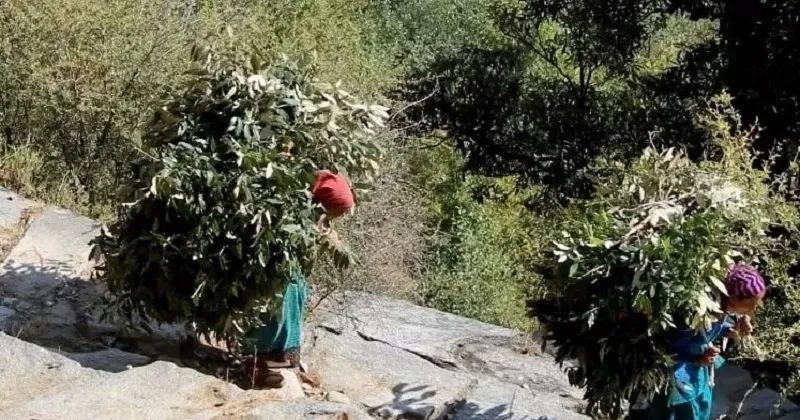
Women farmers in Himalayas
“Women receive very little return for their efforts and do not obtain the right financial backing from men. Additionally, women in India are not recognised as farmers, thereby having less access to land, loans, and machinery than men,” Himani explains.
Rudranath Mahila Gram Sangathan — a woman farmers self-help group (SHG) — provides a proper economic foundation to start businesses co-operatively and helps them bring a peaceful coexistence between people and wildlife.
In fact, Himani invests all the funds raised to support these women farmers to start their organic Kiwi fruit farming business.
Slowly, but steadily
Although Himani started as an independent researcher in 2014, in the following year, she got a grant from Rufford Grant, the UK. She hired an assistant from the village, whom she trained about wildlife and their behaviour.
Eventually, more women from the village joined her and showed interest in her journey.
As time passed, she got volunteers from India and abroad to train local women farmers.
At present, Himani has about 60 volunteers in her team and a few local field assistants. She also has student-interns — studying for their masters — as part of her research team.
In the next three-four years, Himani plans to make Kiwi farming a stable source of income for all women farmers, developing the Mandal Valley into a Kiwi farming area.
“This will eventually ease out the farming process for all women. It is also a safer option as it will save the crops from wild animals. Post the development, I would like to record the documentary of the women farmers and portray the success stories of these women, which can be inspiring to others,” she says.
Edited by Suman Singh

![[Monday Motivation] Meet Himani Nautiyal, the wildlife researcher improving the socio-economic status of Himalayan women farmers](https://images.yourstory.com/cs/5/79900dd0d91311e8a16045a90309d734/MM-and-SS-1635688292132.png?mode=crop&crop=faces&ar=2%3A1&format=auto&w=1920&q=75)
